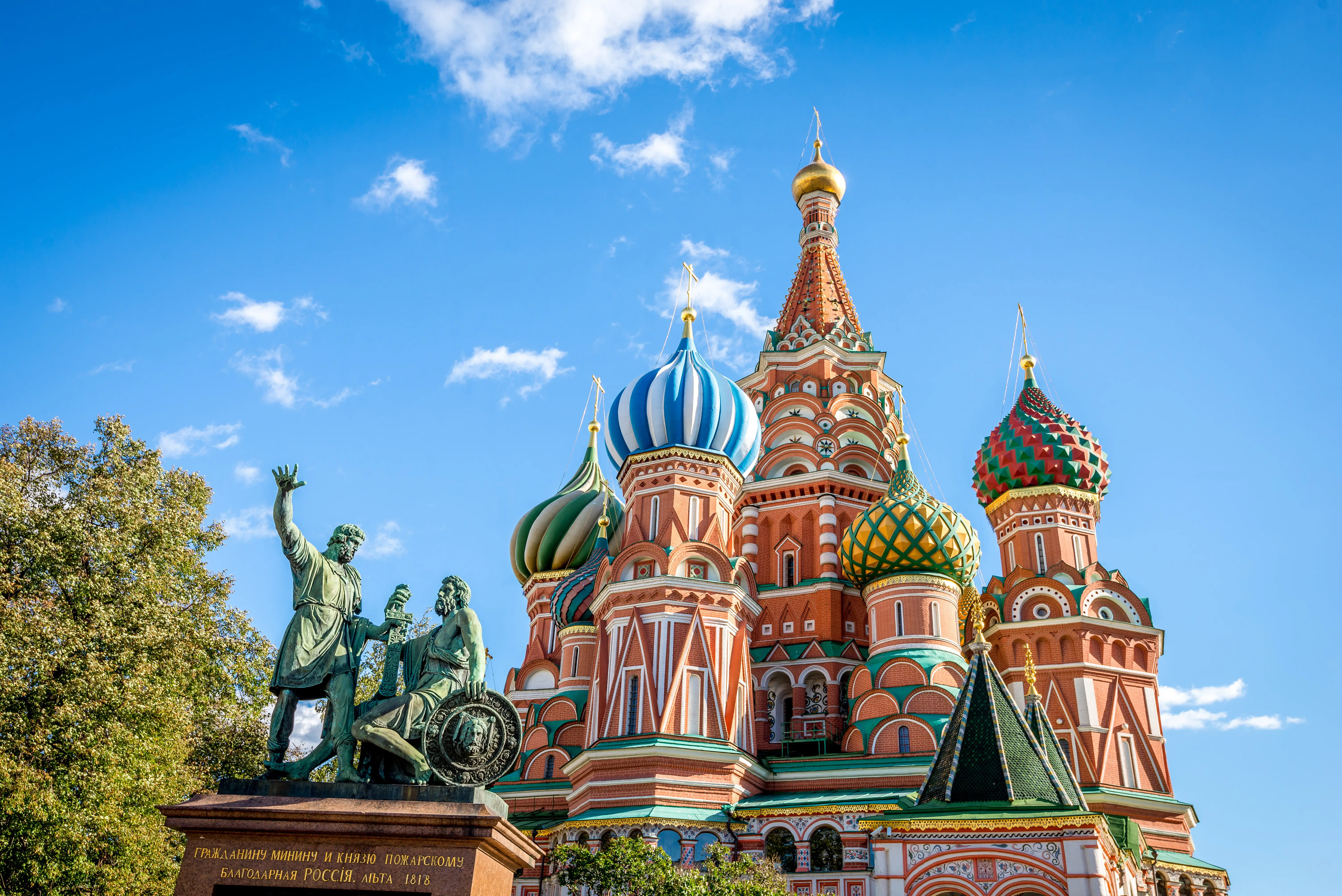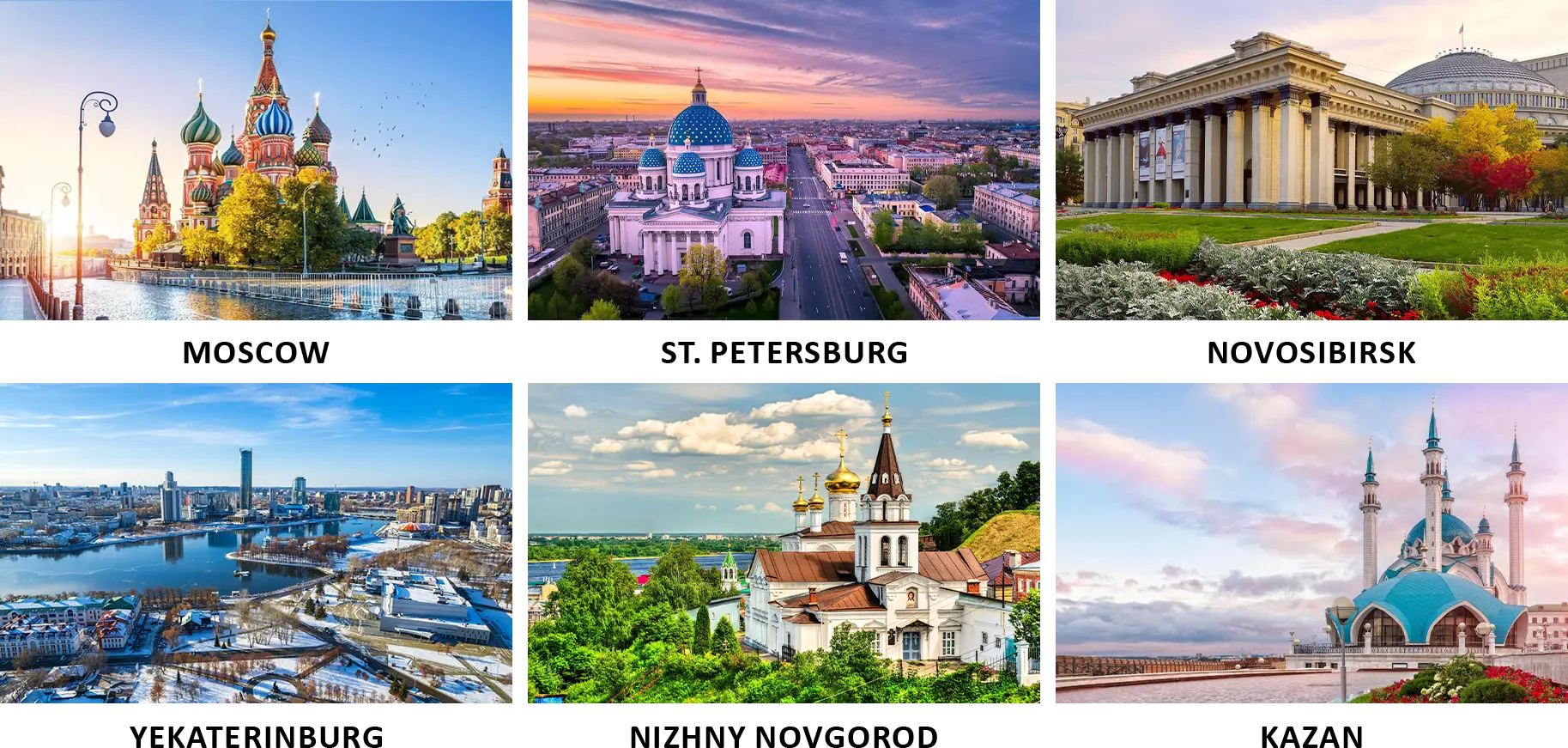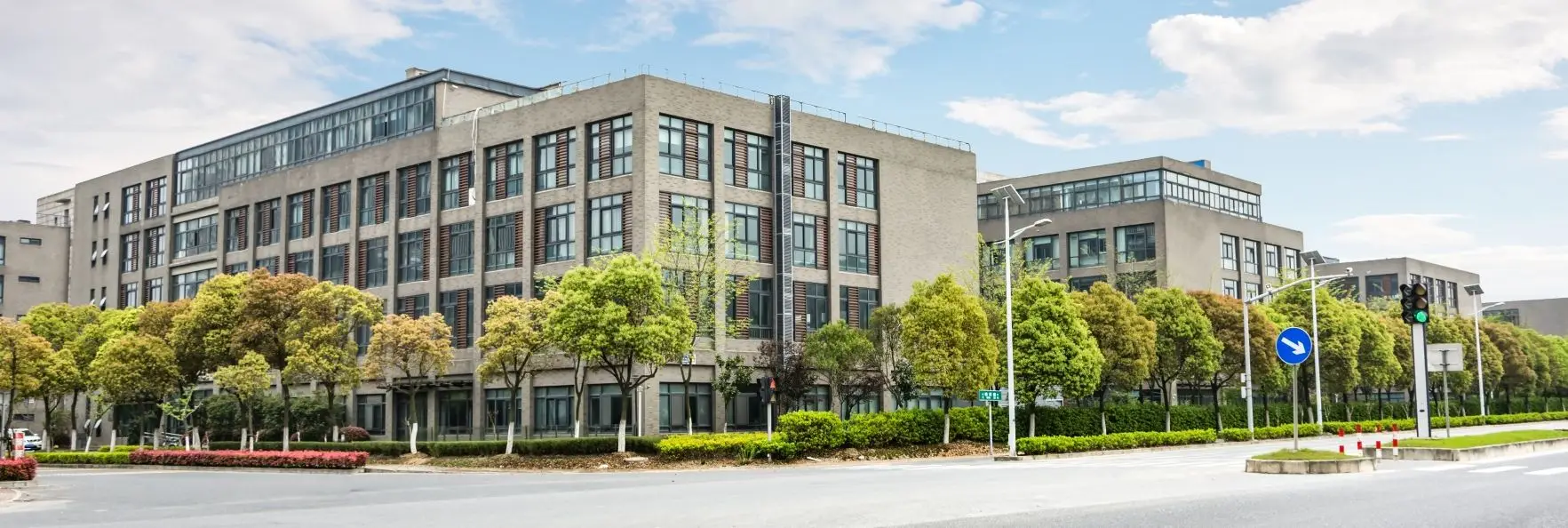ABOUT RUSSIA

Russia, officially known as the Russian Federation, is an expansive nation spanning Eastern Europe and Northern Asia, encompassing over 17 million square kilometers of diverse terrain. Moscow, the capital and largest city, stands as a symbol of its rich history and cultural heritage. Historically, Russia's roots trace back to the East Slavs and the medieval state of Kievan Rus, evolving into the formidable Russian Empire in the 18th century. The tumultuous events of the 20th century, including the Russian Revolution of 1917 and the subsequent formation of the Soviet Union, have left an indelible mark on its trajectory. Today, Russia operates under a federal semi-presidential republic, with the President as the head of state and the Prime Minister as the head of government. Economically, it boasts vast natural resources, particularly in energy, although its economy faces challenges such as dependence on oil prices and issues of corruption. Russian culture, renowned for its contributions to literature, music, ballet, and science, continues to captivate audiences worldwide. Geopolitically, Russia maintains significant influence, particularly in Eastern Europe and Central Asia, yet faces tensions with Western nations over various issues.



